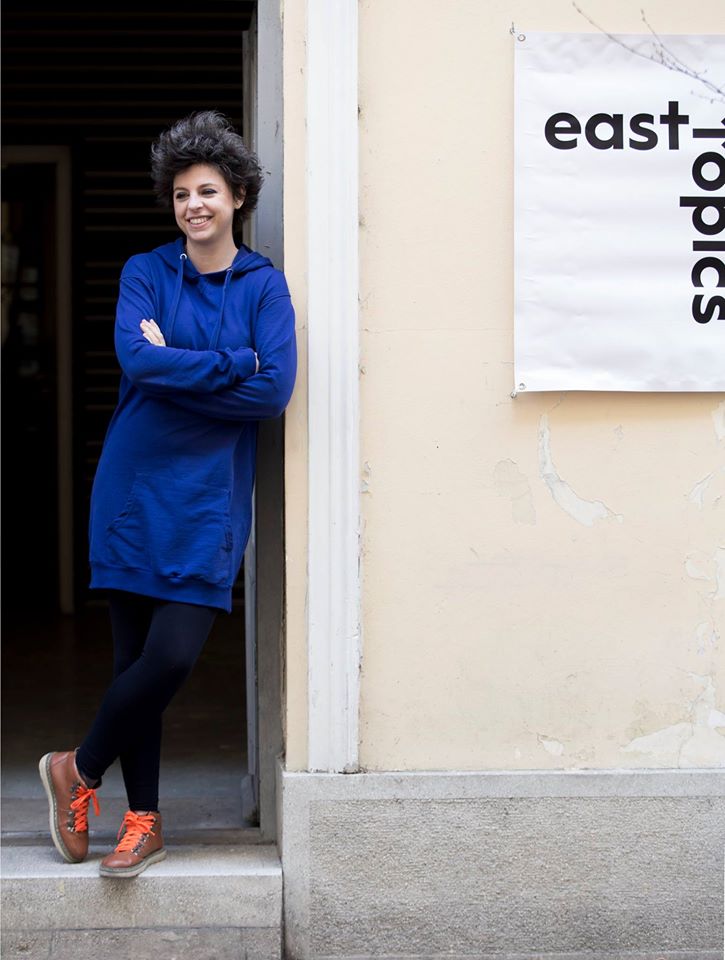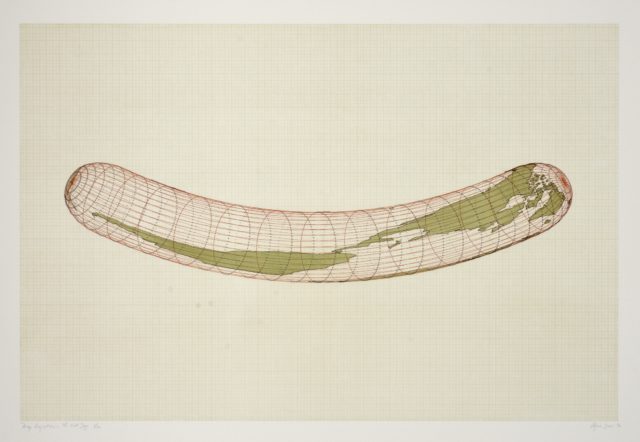Foundation Tallinn Print Triennial (TPT) organises contemporary print-based art exhibitions every three years. The first TPT took place in 1968 with the participation of all three Baltic countries – Estonia, Latvia and Lithuania. After the collapse of the Soviet Union, TPT became more international, and it began dealing with more contemporary issues and testing the limits of printmaking. In 2011, 113 artists from 35 different countries took part in the 15th TPT. The non-profit, independent and non-political organisation Tallinn Print Triennial Foundation was founded in 1999 in order to continue organising the TPTs. Until that time, all TPTs were organised by the Estonian Artists’ Association.
Over the years, Tallinn Print Triennial has remained true to its roots, and although the general concept of the Triennial still relates to print as a reproducible medium in the broadest sense of the term, it strives to be an event located in the wider context of international contemporary art, where it is not the medium but the content and its social relevance that prevails.
For its 18th edition to be held in summer 2021, Tallinn Print Triennial will focus on the complex and changing socio-political climate now prevalent in Central and Eastern Europe, and more specifically on the rise of conservative right-wing politics in both Europe and the Americas, and reflect on how art is able to address the changes that are reshaping the world in these times of the pandemic. Among the key notions that the concept will investigate are how individuals or communities can survive, settle or transform in these circumstances; what are the daily challenges of individuals living in these contexts; what are the possible countermeasures or means of survival in these societies which have, to some extent, become to resemble an absurdist spectacle.
The curatorial project selected by the jury of the Triennial was elaborated by Budapest-based curator Róna Kopeczky. It will give voice to contemporary artists based in or originating from the Central and Eastern European region who reflect boldly and critically on burning issues, such as the rise of right-wing phobist politics, globally misplaced priorities, the collapse of democracies, the shrinking of freedom – in both life and art – and the general sense of conditioned fear and hostility prevailing today.
The concept wishes to reflect more precisely on the mechanisms through which positive notions shift and slide in our interpretation towards the negative realm and become associated with different, contradictory contents depending on the new contexts or situations in which they are used. Meeting this misleading shift of signification, the exhibition aims to be a contemporary reflection on the fundamentally absurd global condition, and more broadly on the dissonances of the human condition, the incongruity between contemporary artists’ status, and the conceptual and visual answers they elaborate to solve or soothe the tension and anxiety arising from our critically contradictory times. The exhibition focuses on the challenge of bearing the bizarre reality with dignity and responsibility, shedding easy solutions and comforting illusions, attacking comfortable certainties, confronting difficulties on a path of survival going through resilience or transformation, and leading towards freedom of art and the liberation of self.
Inviting artists from the regional contemporary art scene with both existing works and new commissions, the project comprises three closely intertwined cycles that are all articulated around the spectacles of absurdity with the intention to dissect, appropriate and distort it, but that also playfully propose the antidote of humour, derision and laughter to it or a transcendental strategy, an imagined alternative that builds on visionary defiance or poetic escapism.
As the previous editions have usually taken place in institutional contexts (e.g. 17th TPT took place in the Contemporary Art Museum of Estonia (EKKM) and the Kumu Art Museum), the Triennial intends this time to move away from the white cube towards more diverse venues which could weave the different chapters of the exhibition more directly into the urban tissue of Tallinn.
About the curator:
Róna Kopeczky (1983) is a curator and art historian based in Budapest. She worked as a curator for international art in Ludwig Museum Budapest between 2006 and 2015, where she mostly focussed on the site- and situation-specific practices of young and mid-career artists from the Central Eastern European region. In February 2015, she joined acb Gallery in Budapest as artistic director. She participated in the organisation of the first OFF-Biennale Budapest from the beginning of 2015 and was a member of the curatorial team for its second edition held in autumn 2017. Róna Kopeczky is the co-founder of Easttopics, a platform and hub dedicated to the contemporary art of Central Eastern Europe that is based in Budapest. She holds a PhD in Art History from Paris-Sorbonne University.

Featured image: Agnes Denes. Isometric Systems in Isotropic Space – Map Projections: The Hot Dog, 1976. Four-color lithograph on Rives BFK paper, 74 x 104 cm. Courtesy the artist and Leslie Tonkonow Artworks + Projects, New York
source: Tallinn Print Triennial
